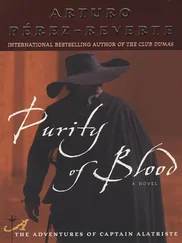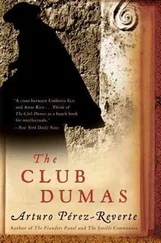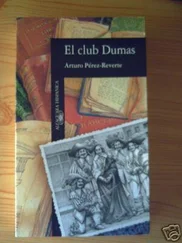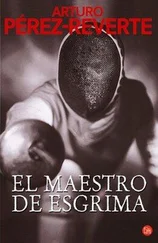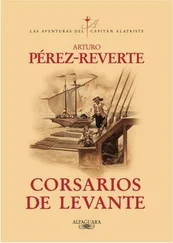Arturo Pérez-Reverte - The King's Gold
Здесь есть возможность читать онлайн «Arturo Pérez-Reverte - The King's Gold» весь текст электронной книги совершенно бесплатно (целиком полную версию без сокращений). В некоторых случаях можно слушать аудио, скачать через торрент в формате fb2 и присутствует краткое содержание. Жанр: Старинная литература. Описание произведения, (предисловие) а так же отзывы посетителей доступны на портале библиотеки ЛибКат.
- Название:The King's Gold
- Автор:
- Жанр:
- Год:неизвестен
- ISBN:нет данных
- Рейтинг книги:4 / 5. Голосов: 1
-
Избранное:Добавить в избранное
- Отзывы:
-
Ваша оценка:
- 80
- 1
- 2
- 3
- 4
- 5
The King's Gold: краткое содержание, описание и аннотация
Предлагаем к чтению аннотацию, описание, краткое содержание или предисловие (зависит от того, что написал сам автор книги «The King's Gold»). Если вы не нашли необходимую информацию о книге — напишите в комментариях, мы постараемся отыскать её.
The King's Gold — читать онлайн бесплатно полную книгу (весь текст) целиком
Ниже представлен текст книги, разбитый по страницам. Система сохранения места последней прочитанной страницы, позволяет с удобством читать онлайн бесплатно книгу «The King's Gold», без необходимости каждый раз заново искать на чём Вы остановились. Поставьте закладку, и сможете в любой момент перейти на страницу, на которой закончили чтение.
Интервал:
Закладка:
When I reached Diego Alatriste’s side, he gave a slight smile and placed one hand on my shoulder. He looked thoughtful, his clear green eyes studying the scene before him, and I remember thinking that his was not the expression one would expect on the face of someone arriving home.
“Well, here we are again, my boy.”
He said this in a strange, resigned tone, as if being there were no different from being anywhere else. I, meanwhile, was gazing ahead at Cádiz, fascinated by the play of light on its white houses and the majesty of its vast blue-green expanse of bay, a light so very different from that of my birthplace, Oñate, and yet which I also felt to be mine.
“Spain,” murmured Curro Garrote.
He sneered as he said this, pronouncing the word as if he were spitting it out.
“The ungrateful old bitch,” he added.
He touched his shattered arm again as if in response to a sudden pang of pain, or as if he were trying to remember why it was that he had been prepared to risk both limb and life at Terheyden. He was about to say something else, but Alatriste shot him a stern glance with those piercing eyes of his, which, along with his aquiline nose and bristling mustache, gave him the threatening air of a cruel, dangerous falcon. He looked at him briefly, then at me, and again turned cold eyes on Garrote, who said nothing more.
The sailors had dropped anchor, and our ship stood motionless in the bay. Black smoke from the Fort of Puntal still hung over the strip of sand that joins Cádiz to the mainland, but the city had otherwise barely been touched by the battle. People had gathered near the royal warehouses and the customhouse and were standing on the shore, waving, while feluccas and other smaller boats gathered around us, their crews cheering as if we had been the ones to drive the English from Cádiz. Later, I learned that they had mistaken us for the advance party of the Indies fleet, whose yearly arrival we, like the soundly beaten Earl of Leicester and his Anglican pirates, had anticipated by a matter of days.
And God knows, our voyage, too, had been long and full of incident, especially as far as I was concerned, for this was my first experience of those cold northern seas. From Dunkirk, in a convoy of seven galleons—with various merchant ships and Basque and Flemish privateers bringing our numbers up to seventeen—we broke through the Dutch blockade as we headed north, where no one was expecting us, and fell upon the Dutch herring fleet, of whom we made short work, before continuing around Scotland and Ireland and returning south across the ocean. The merchant ships and one of the galleons left us—at Vigo and at Lisbon, respectively—and the other larger ships sailed on down to Cádiz. As for the privateers, they stayed in the north, prowling the English coast and doing an excellent job of plundering, burning, and generally disrupting the enemy’s maritime activities, just as they regularly did to us in the Antilles and wherever else they could. God, sometimes, is well served, and it’s true what they say: As ye sow, so shall ye reap.
It was on this voyage that I witnessed my first naval battle. We had sailed through the channel between Scotland and the Shetland Islands, a few leagues west of an island called Foul, a black, inhospitable place, like all those gray-skied isles, when we came upon a large flotilla of those herring boats that the Dutch call buizen, under escort by four Lutheran men-of-war, amongst them an urca , a large, impressive storeship. The merchant vessels with us stood aside, keeping well to windward, while the Basque and Flemish privateers fell like vultures on the fishing boats, and our flagship, the Virgen de Azogue, led the rest of us into battle against the Dutch men-of-war. As usual, the heretics made excellent use of their artillery, firing on us from a distance with their forty-pound cannon and their culverins, all thanks to the skillful maneuverings of their crews, so much better adapted to the sea than the Spanish, a skill in which—as the disaster of the Great Armada demonstrated—the English and the Dutch always had the advantage, for their sovereigns and their governments encouraged the nautical sciences, took good care of their sailors, and paid them well, whereas Spain, whose vast empire depended on the sea, merely turned her back on the problem, accustomed as she was to giving more importance to the soldier than to the sailor, so much so that even at a time when common port prostitutes boasted aristocratic names like Guzmán and Mendoza, the army still felt that it had something of the nobility about it, while the navy continued to be considered one of the lowlier professions. The result was that while the enemy had plenty of good artillerymen, skilled crews, and captains experienced at sea and at war, we—despite our excellent admirals and pilots and even better ships—had only valiant infantrymen. At the time, though, we Spaniards were greatly feared when it came to hand-to-hand fighting, and for that reason, during naval battles, the Dutch and the English usually tried to keep us at a distance, to dismast our ships with cannon shot, and to batter us into submission by slaughtering as many men on deck as possible, while we struggled hard to get close enough to board, for that was where the Spanish infantry was at its best and had proved itself to be both ruthless and unbeatable.
So it was during the battle near the isle of Foul, with us, as usual, trying to edge in closer, and the enemy, as was their way, trying to prevent us from doing so with their almost continuous fire. The Azogue, however, despite this onslaught—which brought down half the rigging and left the deck awash with blood—managed valiantly to get in amongst the heretics, so close to the Dutch flagship that we actually rammed their forecastle with our spritsail. From there, grappling irons were thrown, and a horde of Spanish infantrymen boarded, amidst much musket fire and brandishing of pikes and axes. Not long afterward, we on the Jesús Nazareno , now sailing to leeward and firing on the enemy with our harquebuses, saw that our fellow Spaniards had reached the quarterdeck of the Dutch flagship and were brutally repaying the enemy for what they had hurled at us from afar. I need only say that the most fortunate among the heretics were those who jumped into the icy water to avoid having their throats cut. Thus we captured two urcas and sank a third; a fourth, badly damaged, managed to escape, while the privateers—for our Catholic Flemings from Dunkirk did not hold back—gleefully plundered and burned twenty-two herring boats, which desperately tacked this way and that, like chickens when a fox sneaks into the chicken run. And at nightfall, which, in those latitudes, arrives when it is still only midafternoon in Spain, we headed southwest, leaving behind us, on the horizon, a scene of fires, shipwrecks, and desolation.
There were no further incidents apart from the discomforts of the voyage itself, and if we discount the three days of storm halfway between Ireland and Cape Finisterre, which flung us about belowdecks and had us all saying our Paternosters and our Ave Marias—indeed, before it could be resecured, a loose cannon rammed several men against the bulkhead, crushing them like bedbugs—leaving the galleon San Lorenzo so much the worse for wear that in the end she limped off to seek shelter at Vigo. Then came the alarming news that the English were once again attacking Cádiz, something we learned only in Lisbon. And so, while some escort ships detailed to the Indies route headed off for the Azores in order to warn the treasure fleet and provide it with reinforcements, we set sail at once for Cádiz, just in time, as I said, to see the backs of the English.
I made use of the voyage to read, with great delight and profit, Mateo Alemán’s Guzmán de Alfarache, and other books that Captain Alatriste had either brought with him or acquired on board; these were, if I remember rightly, The Life of the Squire , Marcos de Obregón, a volume of Suetonius, and the second part of The Ingenious Gentleman Don Quijote de la Mancha . There was also, as far as I was concerned, a practical aspect to the voyage that would, in time, prove extremely useful, for after my experiences in Flanders, where I had acquired all the skills of war, Captain Alatriste and his colleagues took it upon themselves to train me in swordplay. I was rapidly approaching the age of sixteen; my body had filled out, and the hardships endured in Flanders had strengthened my limbs, tested my mettle, and toughened my resolve. Diego Alatriste knew better than anyone that a steel blade can place the most humble man on the same footing as a monarch, and that when all the cards are stacked against you, knowing how to handle a fine piece of Toledo steel provides a more than decent way of earning one’s daily bread—or, indeed, of defending it. To complete my education, which had had its harsh beginnings in Flanders, he had decided to teach me the secrets of fencing, and to this end, every day, we would seek out an empty part of the deck, where our comrades would make room for us or even form a circle to watch with expert eye, proffering opinions and advice and larding these comments with accounts of feats and exploits sometimes more imagined than real. In that world of connoisseurs and experts—for, as I once said, there is no better fencing master than the man who has felt cold steel in his own flesh—Captain Alatriste and I practiced thrusts, feints, attacks, and retreats, strikes performed with the palm up and with the palm down, wounds inflicted with the point of the sword and with the edge of the blade, and various other techniques at the disposal of the professional swordsman. Thus I learned all the tricks of the trade: how to grab my opponent’s sword and then drive my blade into his chest; how to draw my blade back, slashing his face as I did so; how to slice and to thrust with both sword and dagger; how to use a lantern to dazzle, or even the light of the sun; how to make unashamed use of feet and elbows, or of the many ways of wrapping my cloak around my opponent’s blade and then finishing him off in a trice. In short, I learned everything that goes into making the skilled swordsman. And although we could not know it at the time, I would soon be presented with an opportunity to put all this into practice, for a letter awaited us in Cádiz, along with a friend in Seville and an extraordinary adventure that would take place at the mouth of the Guadalquivir River. But all of this I will unfold in the fullness of time. Dear Captain Alatriste,You will perhaps be surprised to receive this letter, which serves, first and foremost, to welcome you on your return to Spain, which I hope has been happily concluded.Thanks to the news you sent me from Antwerp—where your face, bold Spaniard, doubtless made even the River Scheldt grow pale—I have been able to follow your steps, and I hope that, despite cruel Neptune’s traps, you continue safe and well, as, too, our dear Íñigo. If so, you have arrived at precisely the right moment. For if, upon your arrival in Cádiz, the Indies fleet has still not arrived, I must ask you to come at once to Seville by whatever means possible. The king is currently in this city of Betis, on a visit to Andalusia with Her Majesty the queen, and since I am, thankfully, still in favor with Philip IV and with his Atlas, the Conde-Duque de Olivares (although, of course, yesterday is gone, tomorrow has not yet come, and one untimely sonnet or epigram could easily cost me another period of exile in my personal Enxine Sea— Torre de Juan Abad), I am here in his illustrious company, doing a little of everything, and, apparently, a great deal of nothing, at least officially. As to the unofficial, I will tell you about that in detail when I have the pleasure of once more embracing you in Seville. I can say no more until then, only to remark that since the matter requires your participation, it is (naturally) a matter requiring swords.I send you my very warmest regards, and greetings also from the Conde de Guadalmedina, who is here with me, looking as handsome as ever and busily seducing all the ladies of Seville.Your friend, always,Francisco de Quevedo Villegas
Читать дальшеИнтервал:
Закладка:
Похожие книги на «The King's Gold»
Представляем Вашему вниманию похожие книги на «The King's Gold» списком для выбора. Мы отобрали схожую по названию и смыслу литературу в надежде предоставить читателям больше вариантов отыскать новые, интересные, ещё непрочитанные произведения.
Обсуждение, отзывы о книге «The King's Gold» и просто собственные мнения читателей. Оставьте ваши комментарии, напишите, что Вы думаете о произведении, его смысле или главных героях. Укажите что конкретно понравилось, а что нет, и почему Вы так считаете.




